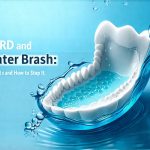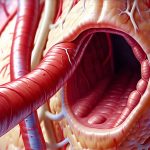Gastroesophageal reflux disease (GERD), commonly experienced as frequent heartburn, impacts millions worldwide. It arises when stomach acid repeatedly flows back into the esophagus, irritating its lining. While lifestyle modifications and over-the-counter remedies often provide relief, many individuals rely on proton pump inhibitors (PPIs) – a powerful class of medications designed to significantly reduce stomach acid production. These drugs have become incredibly prevalent in treating GERD, offering substantial symptom control for those suffering from chronic reflux. However, long-term PPI use isn’t without potential downsides, and emerging research increasingly points toward the possibility of nutrient deficiencies as a significant concern.
The effectiveness of PPIs stems from their ability to block the H+/K+ ATPase enzyme system (the proton pump) in stomach lining cells, thereby inhibiting acid secretion. This is incredibly beneficial for healing erosive esophagitis and managing severe GERD symptoms. But this very mechanism—reducing stomach acidity—can disrupt nutrient absorption. The stomach’s acidic environment isn’t just about digestion; it plays a crucial role in the initial breakdown of nutrients and their subsequent uptake in the small intestine. Suppressing acid production for extended periods can therefore interfere with how well our bodies utilize essential vitamins and minerals, leading to deficiencies that may have far-reaching health consequences. Understanding this interplay is vital for anyone considering or currently taking PPIs long-term. You can learn more about potential issues with can vitamin deficiencies and their impact on your health.
GERD & The Role of Proton Pump Inhibitors
Proton pump inhibitors represent a cornerstone in the pharmacological management of GERD. Medications like omeprazole, lansoprazole, pantoprazole, rabeprazole, and esomeprazole are frequently prescribed—and often used continuously—to alleviate symptoms and prevent complications from acid reflux. Their widespread use reflects their efficacy; they provide potent acid suppression, allowing damaged esophageal tissue to heal and significantly improving quality of life for individuals with chronic GERD. However, this very potency is also linked to the potential for adverse effects. The initial intent – reducing acidity – can inadvertently create a cascade of consequences impacting nutrient absorption.
PPIs aren’t designed as short-term fixes; many patients continue taking them for years, even decades, believing it’s essential to manage their condition. This prolonged use elevates the risk of developing deficiencies because the body has less opportunity to naturally rebalance its digestive processes. The stomach acid isn’t simply a destructive force; it’s an integral part of healthy digestion and nutrient bioavailability. It helps denature proteins, allowing enzymes to work more effectively, and aids in the solubilization of minerals like calcium, iron, and magnesium, making them accessible for absorption.
The duration and dosage of PPI use are significant factors influencing deficiency risk. Higher doses and longer treatment periods generally correlate with a greater likelihood of impaired nutrient absorption. While not everyone on PPIs will develop deficiencies, recognizing this potential side effect is crucial for proactive health management. It’s important to discuss concerns about long-term medication use with your healthcare provider and explore alternative strategies where appropriate. Understanding enzyme deficiencies can also help you better understand digestive issues.
Nutrient Absorption & Acid Suppression
The relationship between stomach acid and nutrient absorption is complex but fundamental. Several key nutrients rely on an acidic environment for optimal uptake. For instance, vitamin B12 requires intrinsic factor (produced in the stomach) and adequate acidity to be effectively absorbed in the ileum—the final section of the small intestine. Reduced acidity can lead to malabsorption of vitamin B12, potentially resulting in neurological problems and anemia over time. Similarly, iron absorption, particularly heme iron from animal sources, is enhanced by stomach acid. Low acidity hinders its conversion into a more absorbable form (ferrous iron).
Calcium absorption also depends on the acidic environment created by stomach acid. While calcium supplements are often recommended for bone health, their effectiveness can be diminished if taken alongside PPIs. The lower pH impairs calcium dissolution and subsequent uptake in the intestines. Magnesium, crucial for numerous bodily functions, faces a similar challenge – its absorption is reduced in less acidic conditions. Furthermore, zinc absorption can also be negatively impacted. This isn’t to suggest that PPIs are inherently harmful; it’s about understanding their impact on nutritional status and taking steps to mitigate potential risks. Many individuals also experience symptoms of GERD without esophagitis, which can be managed with different approaches.
It’s important to note that the impact of PPIs on nutrient absorption isn’t always straightforward. Individual factors like diet, overall health, and genetic predispositions play a role. Some individuals may be more susceptible to deficiencies than others. Additionally, the form of the nutrient (e.g., heme vs. non-heme iron) influences its absorbability even in an acidic environment.
Vitamin B12 Deficiency & PPIs
Vitamin B12 deficiency is one of the most well-documented nutrient deficiencies associated with long-term PPI use. The process begins with reduced hydrochloric acid production, which hinders the release of vitamin B12 from food sources. Normally, pepsin and acid in the stomach separate B12 from proteins, allowing it to bind with intrinsic factor – a protein essential for absorption in the ileum. With diminished acidity, this separation is less efficient.
Symptoms of B12 deficiency can be subtle at first, often mimicking other conditions. These include fatigue, weakness, constipation, loss of appetite, and even neurological symptoms like numbness or tingling in the hands and feet. In severe cases, long-term deficiencies can lead to irreversible nerve damage and cognitive impairment. Regular monitoring of vitamin B12 levels is therefore advisable for individuals on prolonged PPI therapy.
To address potential deficiency:
1. Consider periodic B12 testing via bloodwork.
2. Discuss alternative medication options or dosage adjustments with your physician.
3. Explore dietary sources rich in B12 (meat, fish, eggs, dairy) and/or consider a high-quality B12 supplement – particularly methylcobalamin, which is more readily absorbed.
Magnesium Deficiency & PPIs
Magnesium plays an essential role in over 300 enzymatic reactions within the body, impacting everything from muscle function to nerve transmission and blood sugar control. Long-term use of PPIs has been linked to hypomagnesemia – low magnesium levels – due to impaired absorption in the intestines. The exact mechanism is still being investigated, but it’s thought that reduced acidity interferes with magnesium’s solubilization and subsequent uptake.
Symptoms of magnesium deficiency can include muscle cramps, fatigue, weakness, irregular heartbeat, and even seizures in severe cases. It can also exacerbate other health conditions like osteoporosis and cardiovascular disease. Diagnosing magnesium deficiency solely through serum testing can be challenging, as most magnesium resides within cells.
Strategies to mitigate the risk:
1. Increase dietary intake of magnesium-rich foods such as leafy green vegetables, nuts, seeds, and whole grains.
2. Discuss with your doctor whether magnesium supplementation is appropriate—citrate or glycinate forms are generally well absorbed.
3. Regularly assess for symptoms of deficiency and report them to your healthcare provider.
Iron Deficiency & PPIs
Iron is vital for oxygen transport in the blood, and deficiencies can lead to anemia – a condition characterized by fatigue, weakness, and shortness of breath. While iron absorption isn’t as directly tied to stomach acidity as B12 or magnesium, it’s still affected by PPI use. Specifically, non-heme iron (from plant sources) requires an acidic environment for optimal conversion into the ferrous form, which is more readily absorbed.
The reduced acidity associated with long-term PPI therapy can hinder this process, making individuals more susceptible to iron deficiency anemia. Furthermore, some studies suggest that PPIs may also increase intestinal permeability, potentially contributing to iron loss through the gastrointestinal tract. It’s important to differentiate between heme and non-heme iron. Heme iron from animal sources is less affected by acidity but overall absorption can still be compromised with prolonged acid suppression. Dietary choices for dinner meals can also impact iron levels.
Consider these steps:
1. Consume iron-rich foods regularly, prioritizing heme iron sources like red meat, poultry, and fish.
2. Combine iron-rich foods with vitamin C, which enhances non-heme iron absorption.
3. If iron deficiency is suspected, consult your doctor for testing and appropriate supplementation—ferrous sulfate or ferrous gluconate are common options.
It’s crucial to remember that this information is intended for general knowledge and informational purposes only, and does not constitute medical advice. Always consult with a qualified healthcare professional for any health concerns or before making any decisions related to your health or treatment. If further investigation is needed, consider a flexible sigmoidoscopy.


















